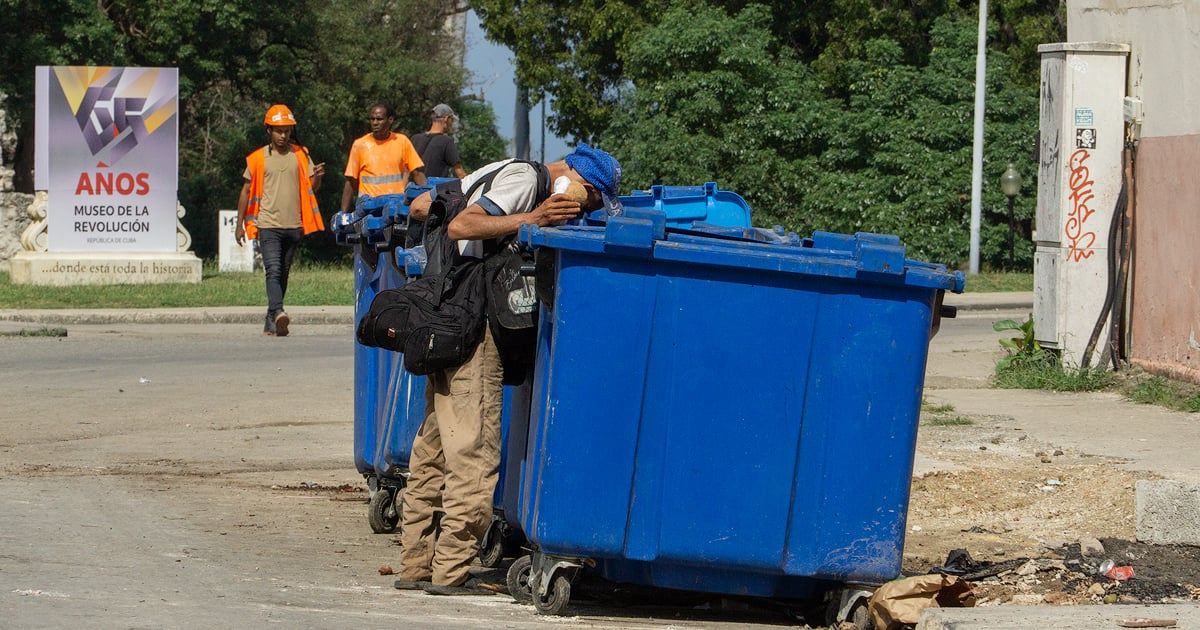
Related videos:
Nothing represents the collapse of a country better than the image of a 74-year-old man rummaging through garbage to find something as basic as salt. In Cuba, shortages have reached a point where the essential becomes a luxury, and the ordinary turns into a deadly threat.
The tragic incident in Havana, where a five-year-old girl and her 25-year-old mother died after consuming nitro salt instead of common salt, is the latest demonstration that the regime has turned survival into a game of Russian roulette.
Nothing represents the collapse of a country better than the image of a 74-year-old man rummaging through the trash.
In any other country, a confusion like this would be unthinkable. But on the island of "revolutionary achievements," where salt costs over 500 pesos per package and obtaining it is a challenge, the unusual part is that there aren't more tragedies of this kind. Here, people don't just die from accidents but as a result of a system that forces them to beg for the essentials.
The direct culprit was the man who collected the package. But the real blame lies with a model that has turned necessity into the mother of all misfortunes. The regime prefers to speak of "human errors" rather than acknowledge that chronic scarcity, the black market, and desperation are direct consequences of its failed policies. There is no "mismanagement" in Cuba. There is a systematic economic crime that has become state policy.
The regime prefers to speak of "human errors" rather than acknowledge that chronic shortages, the black market, and desperation are direct consequences of its failed policies.
That in a country surrounded by sea, salt is considered a luxury item says much more about the Cuban reality than any official discourse. It's not that there is a lack of capacity to produce it; rather, the system is designed so that even the most basic necessities depend on the black market. And while official statements emphasize "food sovereignty" and the "efficiency of socialism," the reality is that people continue to ration rice, stretch their oil, and now even doubt the salt they put on the table.
Access to essential goods should not depend on luck, illegal trafficking, or scavenging through trash. But this is how Cuba operates: the people survive on remittances, bribes, and scraps. And when all of this fails, tragedies like this occur.
It's not about changing the distribution of salt. It’s not a matter of reorganizing warehouses or making transportation more efficient. The problem is that Cuba is trapped in a spiral of programmed misery, where each crisis paves the way for the next. And every tragedy like this serves as a reminder that, under this system, the only guarantee is not the well-being of the people, but the perpetuation of those responsible for the disaster.
If there is one thing that should be clear after this event, it is that the deaths were not an accident. They were the logical result of a model that has failed at the most basic level: to feed, clothe, and care for its people. It is not enough to express outrage or to seek individual blame. The entire system must be dismantled.
Because when even salt can be deadly, it’s clear that the country is rotten to the core.
Filed under:
Opinion article: Las declaraciones y opiniones expresadas en este artículo son de exclusiva responsabilidad de su autor y no representan necesariamente el punto de vista de CiberCuba.